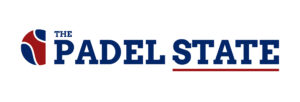
The following article is from guest columnist Ben Nichols, Founder and CEO of the world’s first padel-dedicated Communications Consultancy, Padel 22 — which is looking to help the American padel market grow exponentially in 2024 and beyond.
For a few years now, there’s been a group of us in the padel world that have been keeping a watchful eye on the United States and the prospect of it adopting padel as its new, if not favorite racket sport, then at least its potential to become a medal contender on the podium of future racket sport hobbies.
This group, growing in number, but small enough to count on the fingers of just a few hands, has maintained a kind of “if you know, you know” smugness about the prospects of padel becoming a mainstream sport in America. A smugness doused by more of an optimism than an expectation that the sport’s ascent would happen quickly. These things never happen overnight, go the words of wisdom.
Yet, in Q1 of 2024, something happened. And it culminated in RacquetX, the first-ever all racket sport festival, which took place in America’s racket sports heartland, during what’s now known as America’s Rackets Week, late last month.

Take Q1 first of all. Despite last year, this group – a band of brothers and sisters, disciples of the padel advocacy cause – seeing glimmers of padel’s impending arrival into the mainstream, there really had been no dam burst. None to speak of, anyway. And while it would be too hyperbolic to suggest the dam has burst as I type here in April 2024, there can be no doubting that there has been a significant shift, a serious incline in the line on the padel growth graph in the U.S. If not yet an abundance of clubs, then at the least announcements with concrete plans for new clubs, brands, businesses, and ventures dedicated to the sport.
During this first quarter of 2024, we’ve seen a series of firsts announced. The first padel club in Colorado opening (Parker Racquet Club), New Jersey’s arrival on the padel scene with Benji Markoff’s Padel United Sports Club (cue Manhattan commuters), Music City itself getting in on the act, with Nashville soon to play host to New York pioneers Padel Haus, Brisas and Bond Life Club making their mark on the exclusive playground for New Yorkers, The Hamptons, AMET International announcing the very first American school to have padel courts, Ace Padel with their first site launching later this year in West Palm Beach, murmurings of several clubs in sports-loving Boston, Padel X landing in downtown Miami only last week, the list goes on.
Make no mistake, this is a shift. The word is spreading that padel is the new start-up racket sport in town, and while I don’t believe it needs to be seen as competition to pickleball – a rising tide will help all racket sports – I don’t believe it will be too long before it enters middle America’s consciousness.
And that feeling was solidified in Miami from March 24th – 26th when the American padel community descended to Miami, under one roof for the first real time, to celebrate the sport’s arrival in North America. RacquetX was many things, an event of its time and a huge success story for the racket sports sector’s coming of age. And for padel, RacquetX was the sport’s coming out party.





Here were club operators, investors, brands, businesses, players, coaches, tech firms, congregating, figuring out what’s what, learning who’s who, networking, learning and doing business under a collective spell of padel euphoria. A couple of people I spoke to suggested that padel’s impending boom in the U.S. could be akin to the dot com boom, and with the example to learn from in Sweden where the rapid build out of facilities during the global pandemic led to an oversupply and closure of many venues, America has its case study to take note of, and avoid history repeating itself if it is to ensure its own padel story is a successful, sustainable one.
For any still doubting whether the U.S. will embrace padel, recent events and the successful launch of RacquetX prove that it’s no longer a question of if, but how quickly the sport hits the mainstream.













